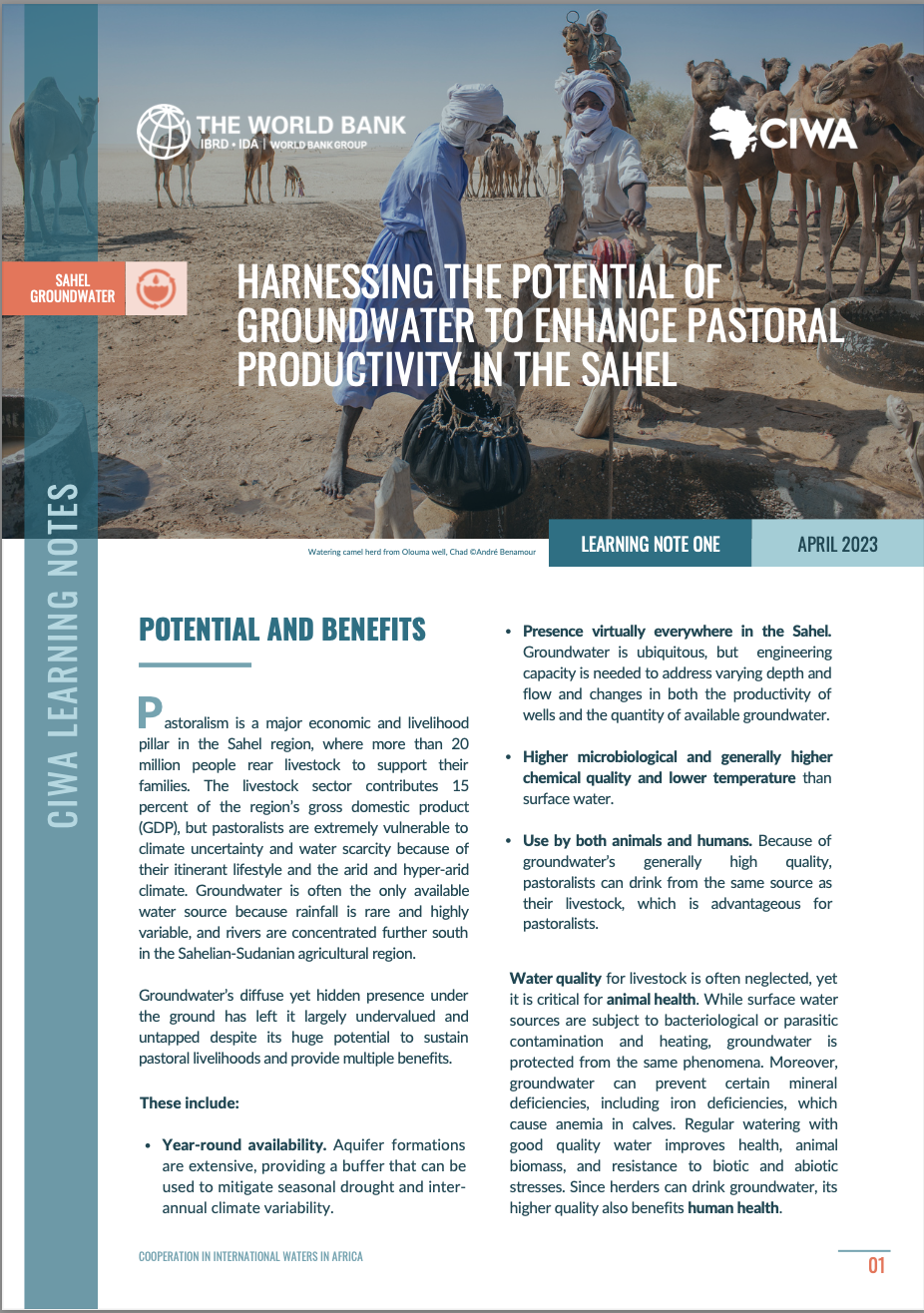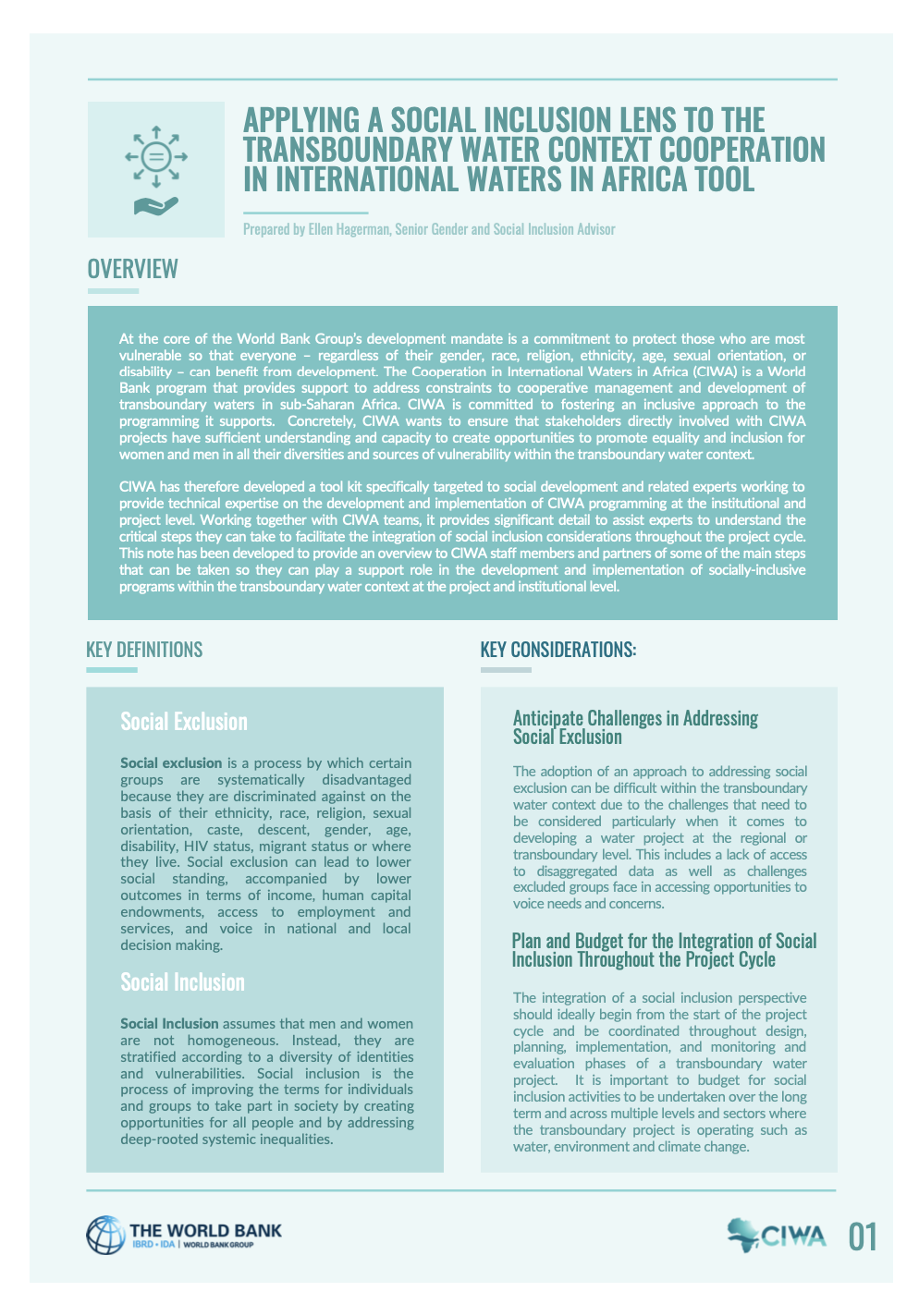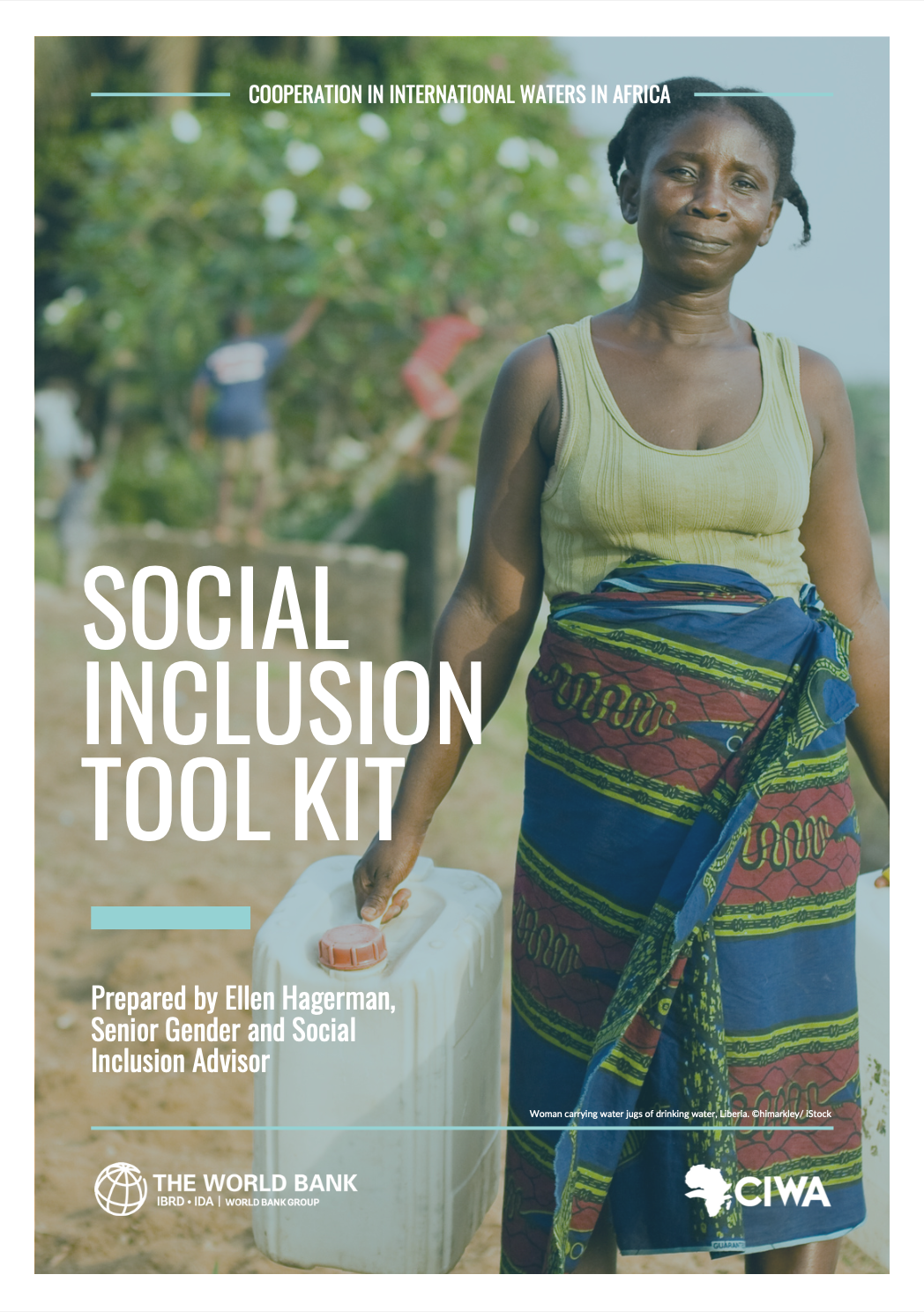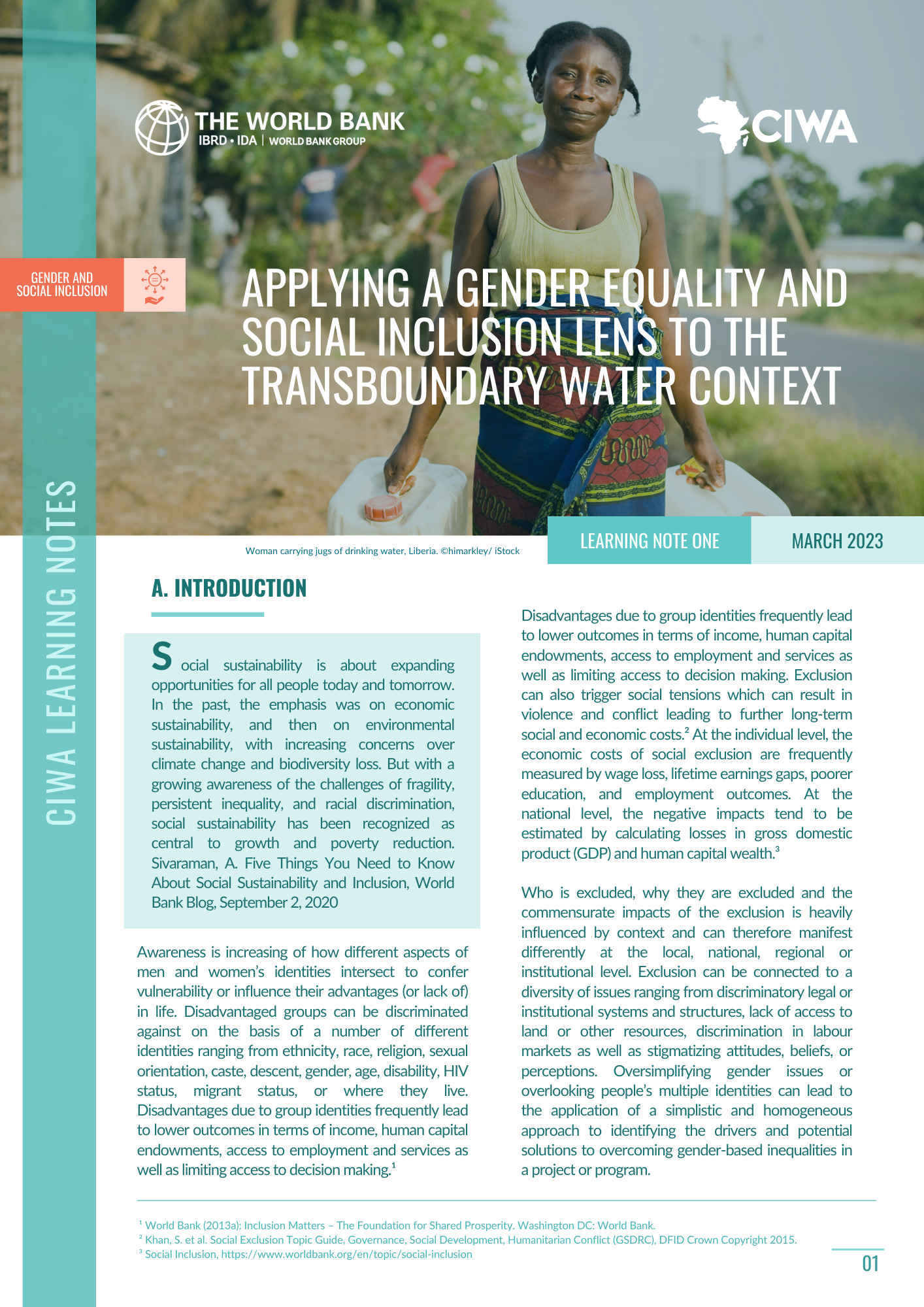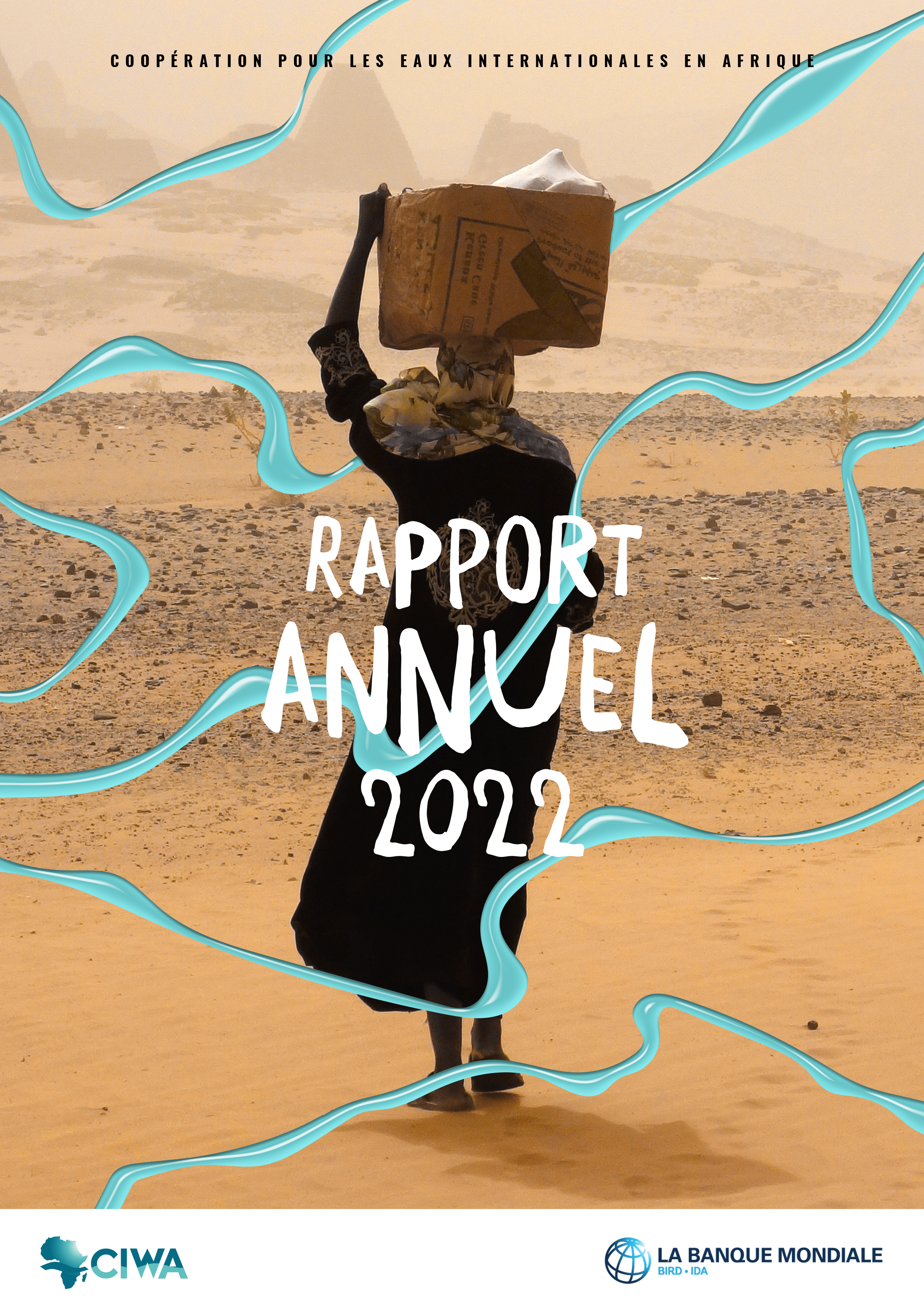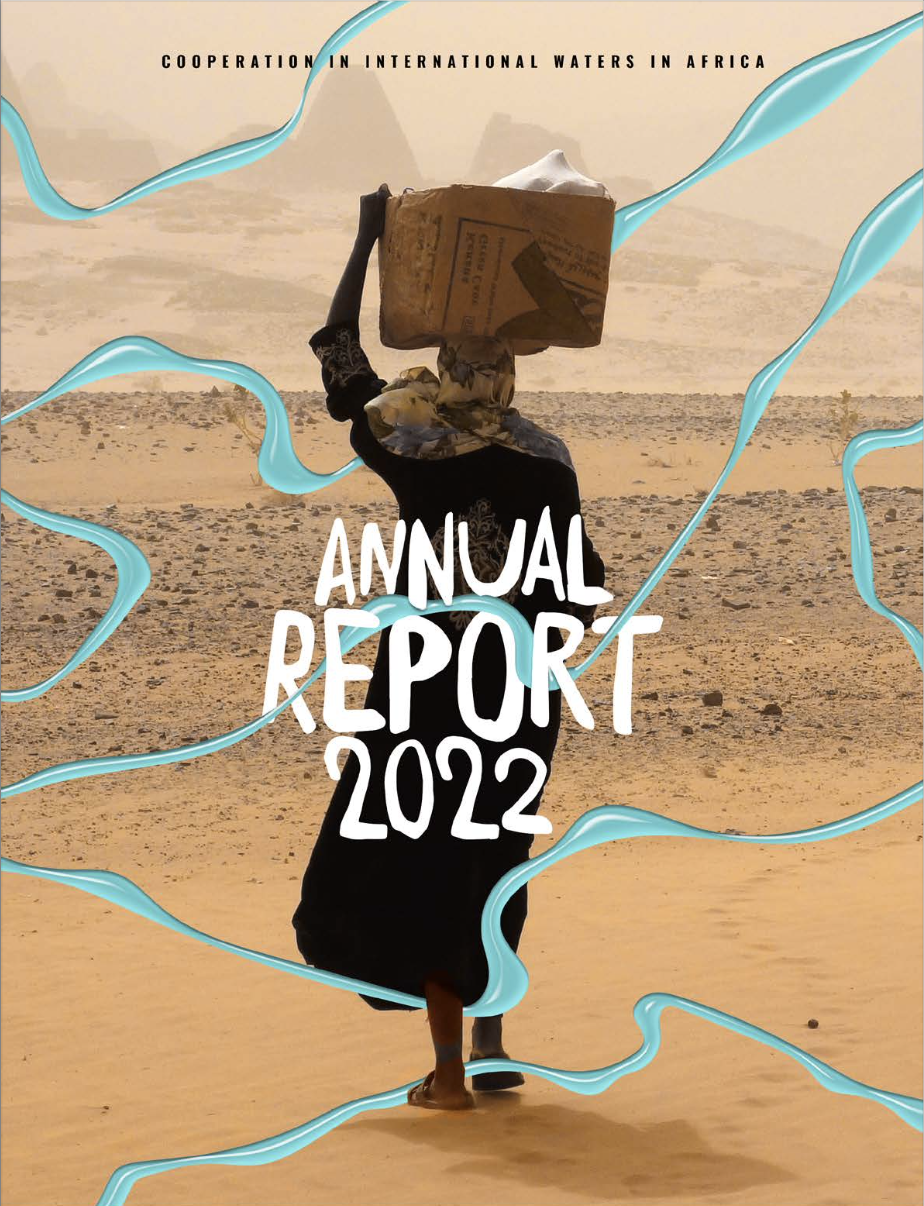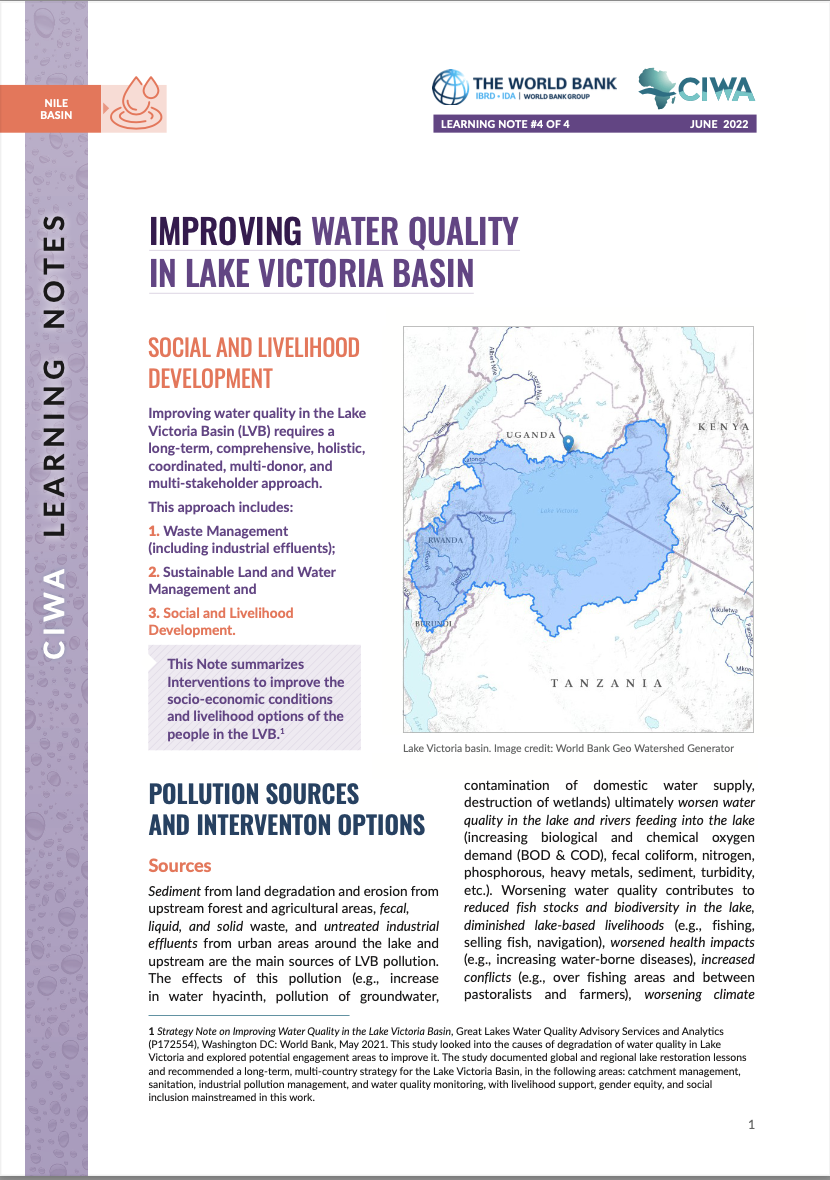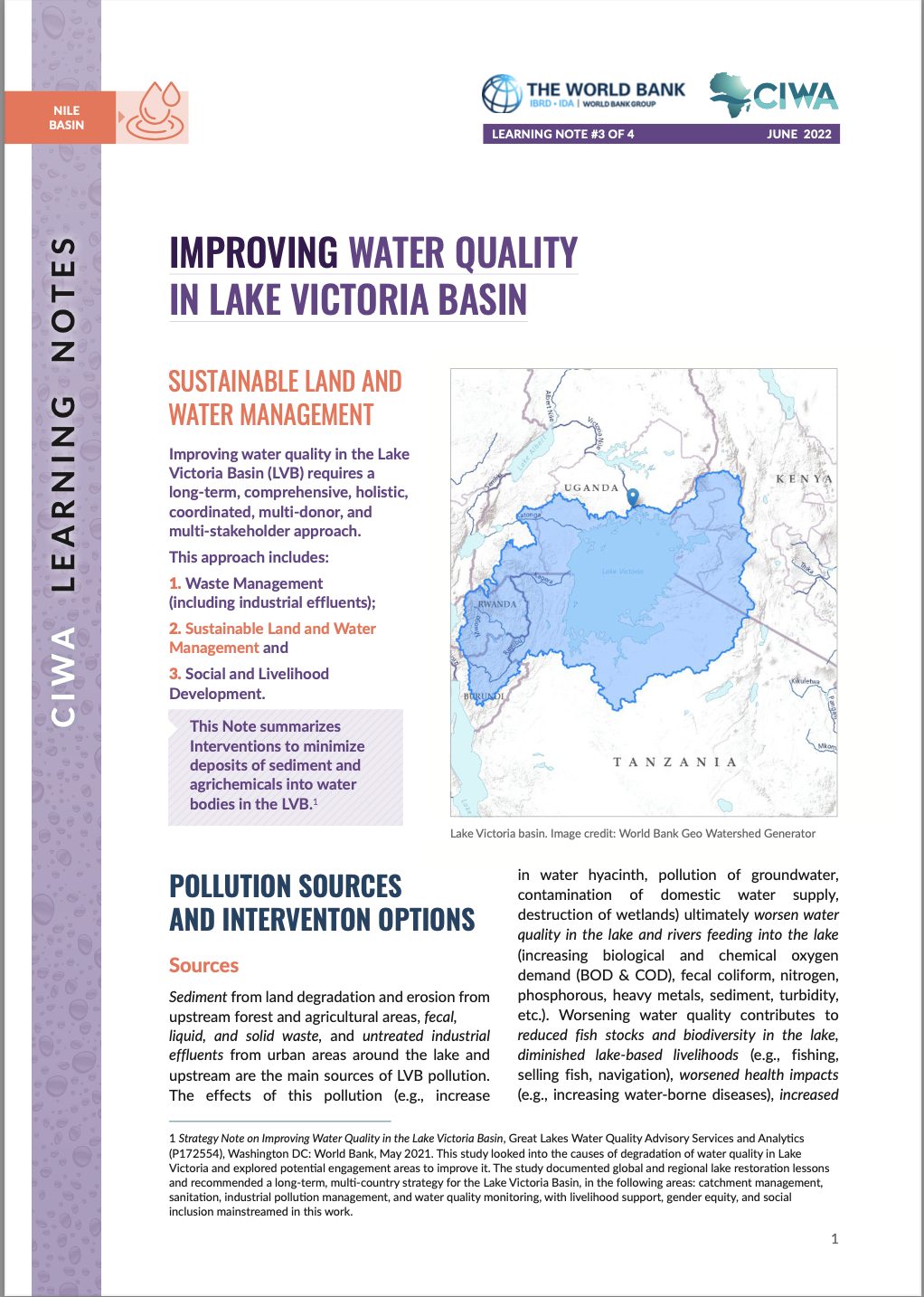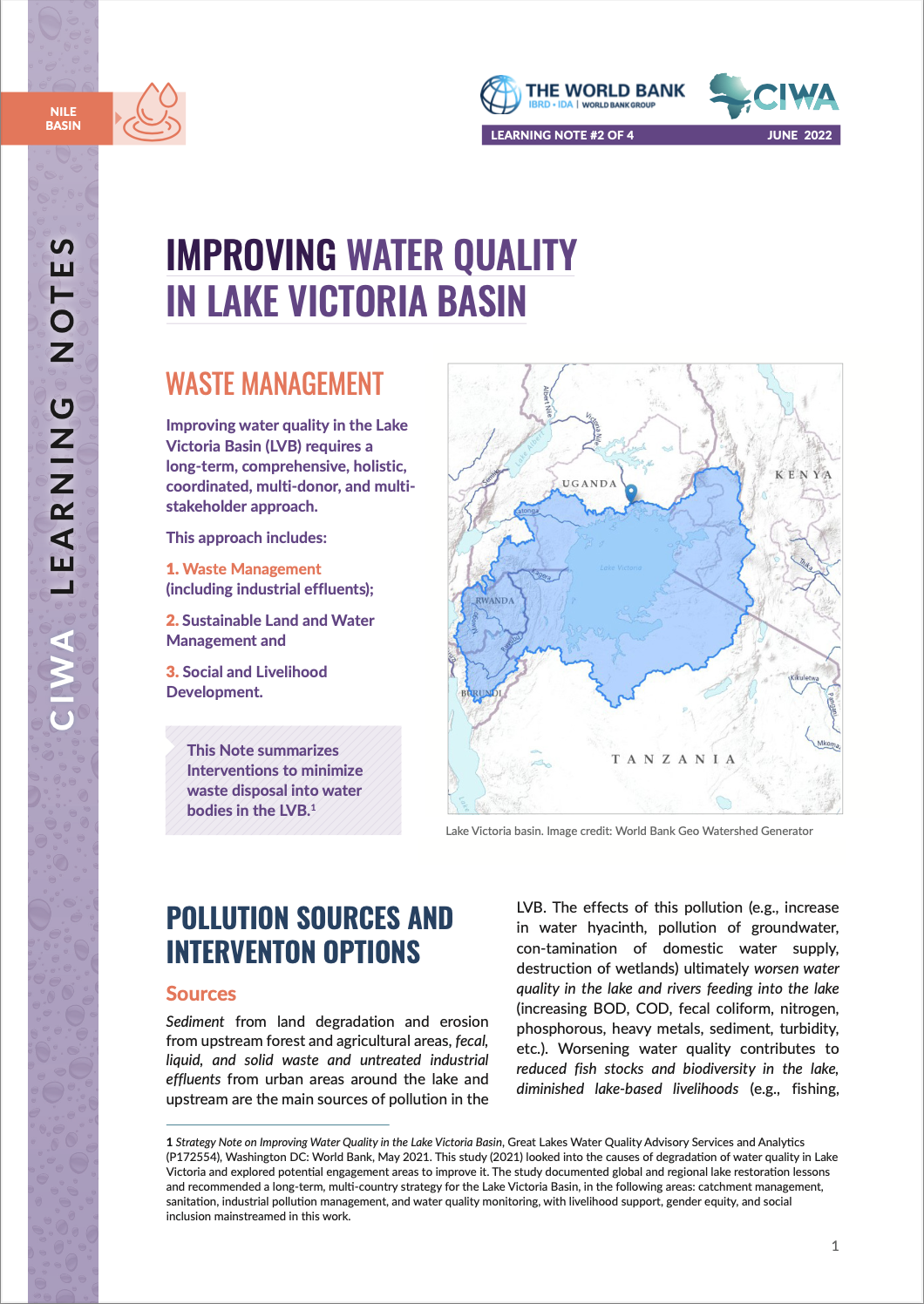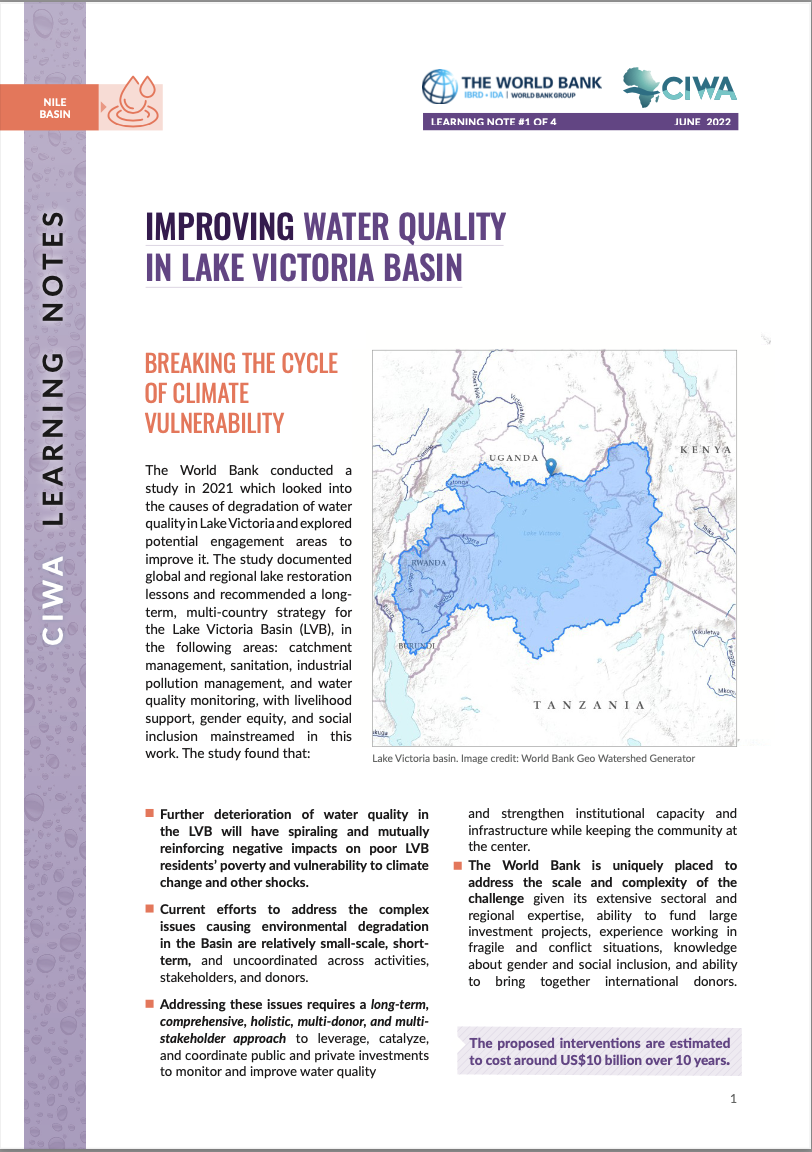CIWA Learning Note: Harnessing the Potential of Groundwater to Enhance Pastoral Productivity in the Sahel
Read our new CIWA Learning Note on how Groundwater coud contribute to sustain pastoral livelihoods and provide multiple benefits in the Sahel region.
Summary: Applying a Social Inclusion Lens to the Transboundary Water Context Cooperation in International Waters in Africa Tool
CIWA has developed a tool kit specifically targeted to social development and related experts working to provide technical expertise on the development and implementation of CIWA programming at the institutional and project level. Here is its summary.
CIWA Social Inclusion Tool Kit
The Cooperation in International Waters in Africa (CIWA) has developed a tool kit specifically targeted to social development and related experts working to provide technical expertise on the development and implementation of CIWA programming at the institutional and project level.
CIWA Learning Note: Applying a Gender Equality and Social Inclusion Lens to the Transboundary Water Context
This Learning Note highlights key lessons and best practices related to the integration of a social inclusion perspective into CIWA’s work. The Learning Note draws upon CIWA’s own approach and experience undertaking GESI analysis by documenting specific steps that were taken at the project development phase of transboundary water projects.
CIWA ANNUAL REPORT 2022 [FRENCH]
The heart of CIWA’s work is convening countries with the goal of cooperating more effectively and with less friction on projects and infrastructure whose impact crosses borders. Read the French version of our Annual Report 2022 to know more.
ANNUAL REPORT 2022 [ENGLISH]
The heart of CIWA’s work is convening countries with the goal of cooperating more effectively and with less friction on projects and infrastructure whose impact crosses borders. Read our Annual Report 2022 to know more.
Improving Water Quality in Lake Victoria Basin: Social and Livelihood Development
The CIWA’s Lake Victoria Basin Learning Notes Series gives an overview of the causes of degradation of water quality in Lake Victoria and explores potential engagement areas to improve it. Based on a World Bank study, those notes go over global and regional lake restoration lessons and the recommended long-term and multi-country strategy.
Improving Water Quality in Lake Victoria Basin: Sustainable Land and Water Management
The CIWA’s Lake Victoria Basin Learning Notes Series gives an overview of the causes of degradation of water quality in Lake Victoria and explores potential engagement areas to improve it. Based on a World Bank study, those notes go over global and regional lake restoration lessons and the recommended long-term and multi-country strategy.
Improving Water Quality in Lake Victoria Basin: Waste Management
The CIWA’s Lake Victoria Basin Learning Notes Series gives an overview of the causes of degradation of water quality in Lake Victoria and explores potential engagement areas to improve it. Based on a World Bank study, those notes go over global and regional lake restoration lessons and the recommended long-term and multi-country strategy.
Improving Water Quality in Lake Victoria Basin: Breaking the Cycle of Climate Vulnerability
The CIWA’s Lake Victoria Basin Learning Notes Series gives an overview of the causes of degradation of water quality in Lake Victoria and explores potential engagement areas to improve it. Based on a World Bank study, those notes go over global and regional lake restoration lessons and the recommended long-term and multi-country strategy.



